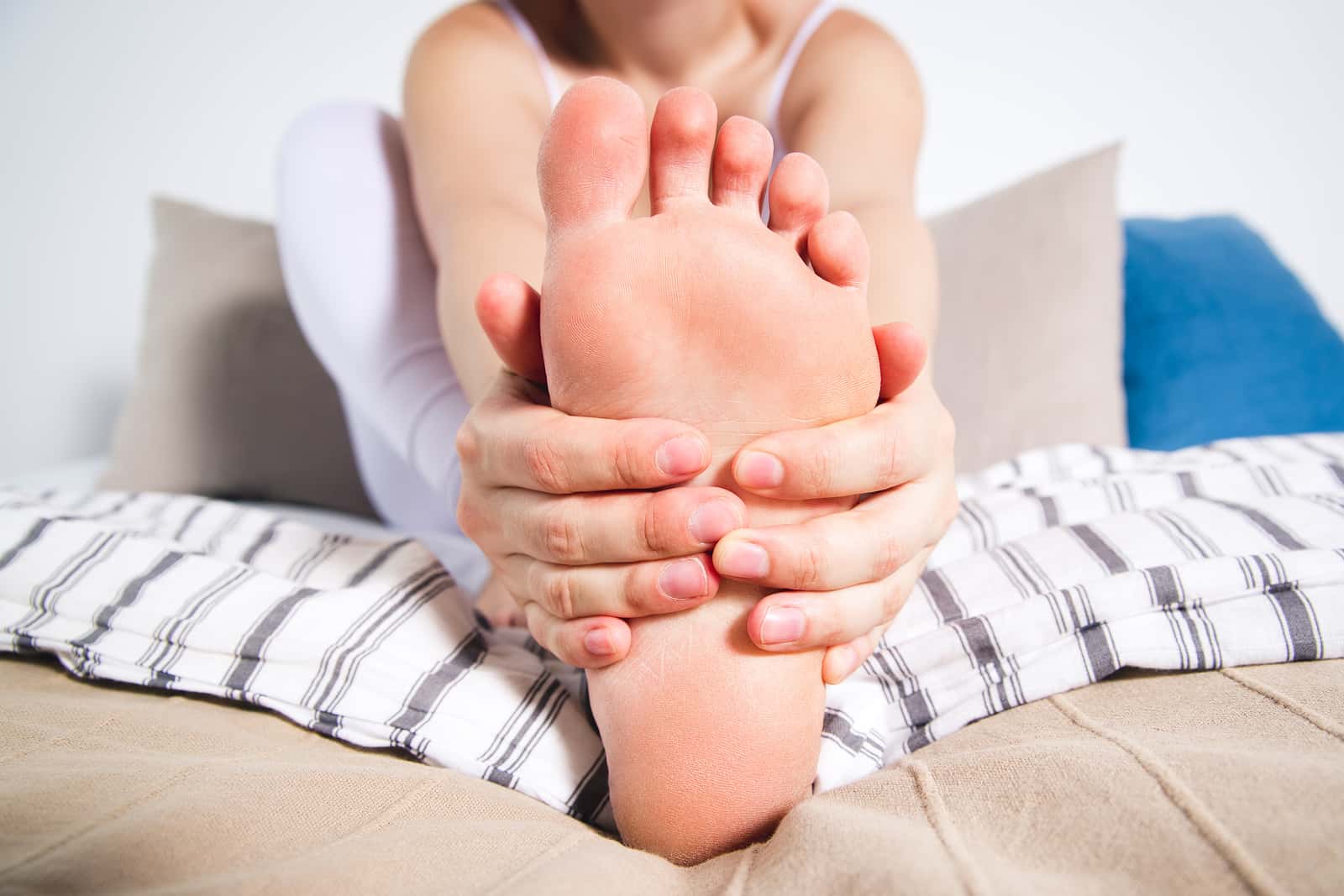
Many people complain about painful leg cramps that wake them at night. The pain they cause can be excruciating, even making grown-ups cry.
Their doctors have nothing they can prescribe for this problem. At one time, they used to prescribe quinine. The FDA decided, however, that this botanical derivative is too dangerous to use for a common problem like nighttime leg cramps. Quinine can cause a life-threatening blood disorder as well as heart rhythm irregularities or severe allergic responses. Although such reactions are rare, they can be extremely serious. As a result, doctors may end up recommending home remedies like tonic water (which contains quinine) or bananas. They might even advise their patients to take magnesium to correct an electrolyte imbalance.
Is Magnesium Deficiency the Cause of Painful Leg Cramps?
Research published in JAMA Internal Medicine suggests, however, that magnesium supplements are no more effective than placebo. In a small randomized, controlled trial, Israeli investigators administered magnesium oxide supplements or placebo to 88 volunteers with nighttime leg cramps. The dose was 865 mg of magnesium oxide, providing 520 mg of free magnesium.
During the month-long study, participants recorded the number of cramps they experienced at night. There was no statistical difference between the two groups. The authors conclude that magnesium supplements are unlikely to offer any benefit for nighttime leg cramps.
Why This Study Might Not Be the Last Word:
We are always thrilled when scientists decide to test a home remedy such as magnesium through a randomized controlled trial. Given that this research had such unimpressive results, no other researchers may want to study magnesium to prevent painful leg cramps. But we are not entirely convinced that this is the last word.
The study authors were careful to calculate ahead of time how many volunteers they would need in the trial for reasonable certainty that the results would be reliable:
“We estimated that 110 participants would be needed in each group to achieve 80% power to detect a treatment difference at a 2-sided .05 significance level if the true difference between treatments is 1 (difference in mean change between treatment groups) NLC per week.” [NLC stands for nocturnal leg cramp.]
So, to get a statistically reliable result, they would have needed 220 volunteers, but they were able to recruit less than half that many. That is why we are reserving judgment on whether or not magnesium supplements are truly useless against painful leg cramps at night. It is not that this study is wrong; but rather, it is not complete.
What Can You Do for Nighttime Leg Cramps?
Many readers will be skeptical about the results of this trial, since they have found that magnesium supplements help them avoid leg cramps.
As one example, Rose in Clearwater, FL, wrote:
“Magnesium definitely takes away muscle cramps. I just take small doses occasionally (as needed). Amazing relief!”
We recently heard from another reader:
“I was having regular nighttime leg and ankle cramps for years until I started taking magnesium glycinate. I had painful leg cramps that made me cry at night and even sometimes during the day. Something had to change, so I searched till I found magnesium.
“I’m not saying it’s a cure-all, but I think it’s better to preempt cramping rather than react to it. After starting my magnesium glycinate regimen I got immediate relief.
“At first, I thought it was just a fluke. But I have been using magnesium glycinate for two months now and I’ve only had one bad cramp. Other people might want to know about this.”
Electrolyte beverage consumption increased the cramp threshold in a study, making muscles less prone to spasms (Muscle & Nerve, Nov. 2019). However, the researchers found that the added electrolytes, including magnesium, did not actually prevent cramps in the participants. The pain was less intense, though, which is worth something.
No doubt some readers will find this approach helpful. Others will turn to one of the home remedies we have written about before. Some of these remedies appear implausible. Who would imagine that swallowing yellow mustard could help? Yet, there is actually a likely explanation for mustard, ginger or other strong flavors stopping leg cramps quickly.
Even more improbable, many readers have put a bar of soap under the bottom sheet and found that it prevents leg cramps while they sleep. We still don’t know for sure how this works, but there a few hypotheses. You can read more about these and other remedies to help nighttime leg cramps in our Guide to Leg Pain.
Citations
- Roguin Maor N et al, "Effect of magnesium oxide supplementation on nocturnal leg cramps: A randomized clinical trial." JAMA Internal Medicine, May, 2017. doi:10.1001/jamainternmed.2016.9261
- Earp JE et al, "Electrolyte beverage consumption alters electrically induced cramping threshold." Muscle & Nerve, Nov. 2019. DOI: 10.1002/mus.26650

